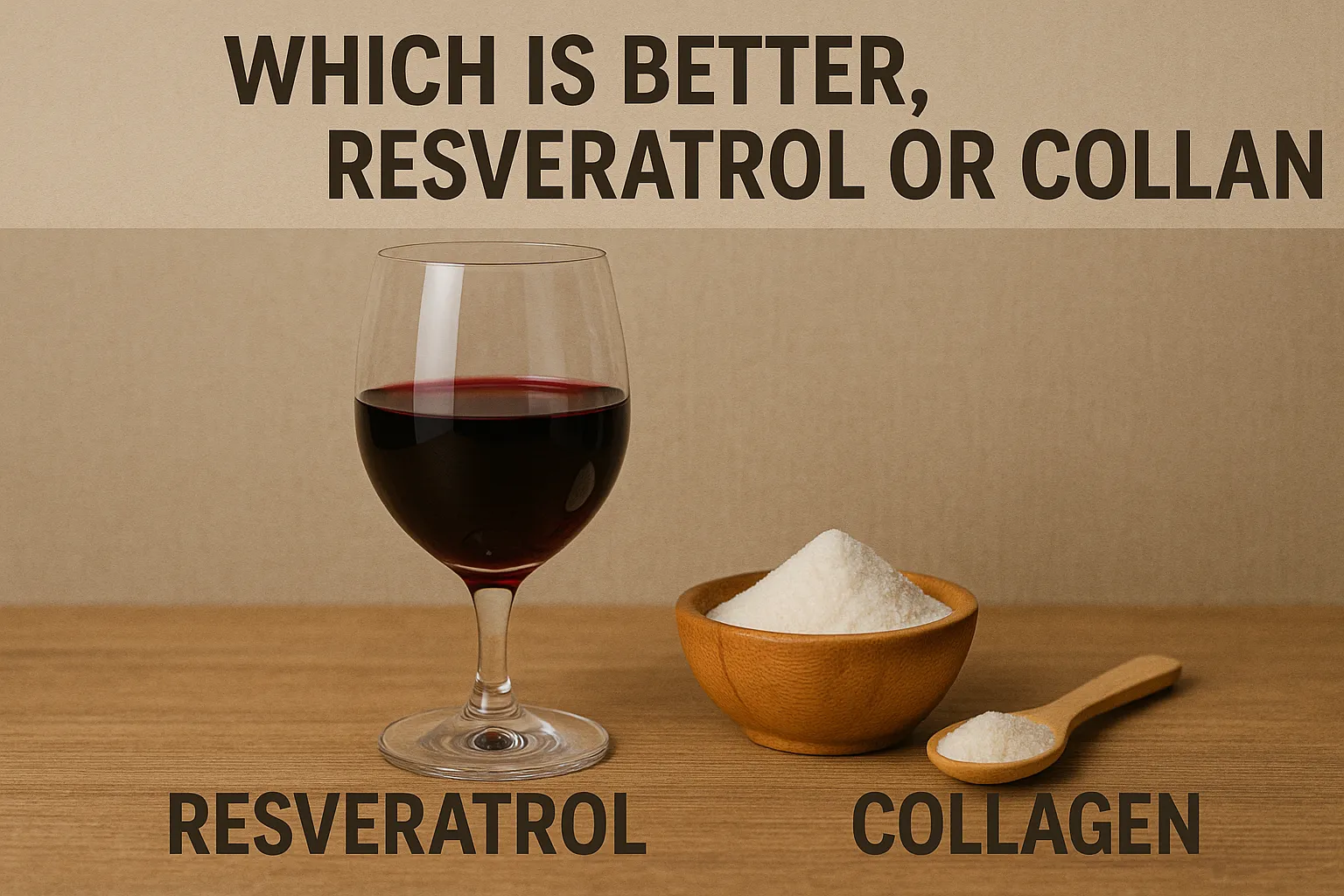Which is better, resveratrol or collagen?
In the world of anti-aging and beauty supplements, resveratrol and collagen are two powerful names. But which one should you choose for radiant skin, youthful energy, and overall wellness?
What is Resveratrol?
Resveratrol is a polyphenol found in grapes, red wine, and some berries. Known for its antioxidant and anti-inflammatory properties, it helps protect the body from cellular damage and supports cardiovascular and brain health.
What is Collagen?
Collagen is the most abundant protein in the body, essential for maintaining skin elasticity, joint health, and strong hair and nails. It naturally decreases with age, leading to visible signs of aging.
Key Differences Between Resveratrol and Collagen
- 🧬 Function: Resveratrol protects cells; Collagen supports skin structure and joints.
- 💊 Form: Resveratrol comes in capsules or powder; Collagen is available in powder, capsules, and drinks.
- 🧖 Target: Resveratrol works internally for long-term health; Collagen directly enhances skin, hair, and nails.
- 📆 Results: Collagen often shows visible results sooner; Resveratrol provides deeper protection over time.
Frequently Asked Questions (FAQ)
Yes! These supplements can complement each other. Resveratrol defends cells against aging, while collagen restores structural support for skin and joints.
Collagen directly affects skin firmness and elasticity, making it more visible for anti-aging results. Resveratrol protects the skin from oxidative stress.
Collagen is more beneficial for joint health as it’s a key structural protein in cartilage. Resveratrol offers anti-inflammatory support but is not structural.
With collagen, results in skin and nails may appear in 4–8 weeks. Resveratrol’s effects are more subtle and long-term, often noticed in energy and health over time.
People on medications or with health conditions should consult a doctor before using either. Resveratrol may interact with blood thinners; collagen is generally well-tolerated.

